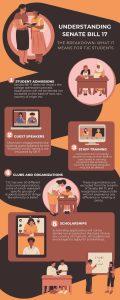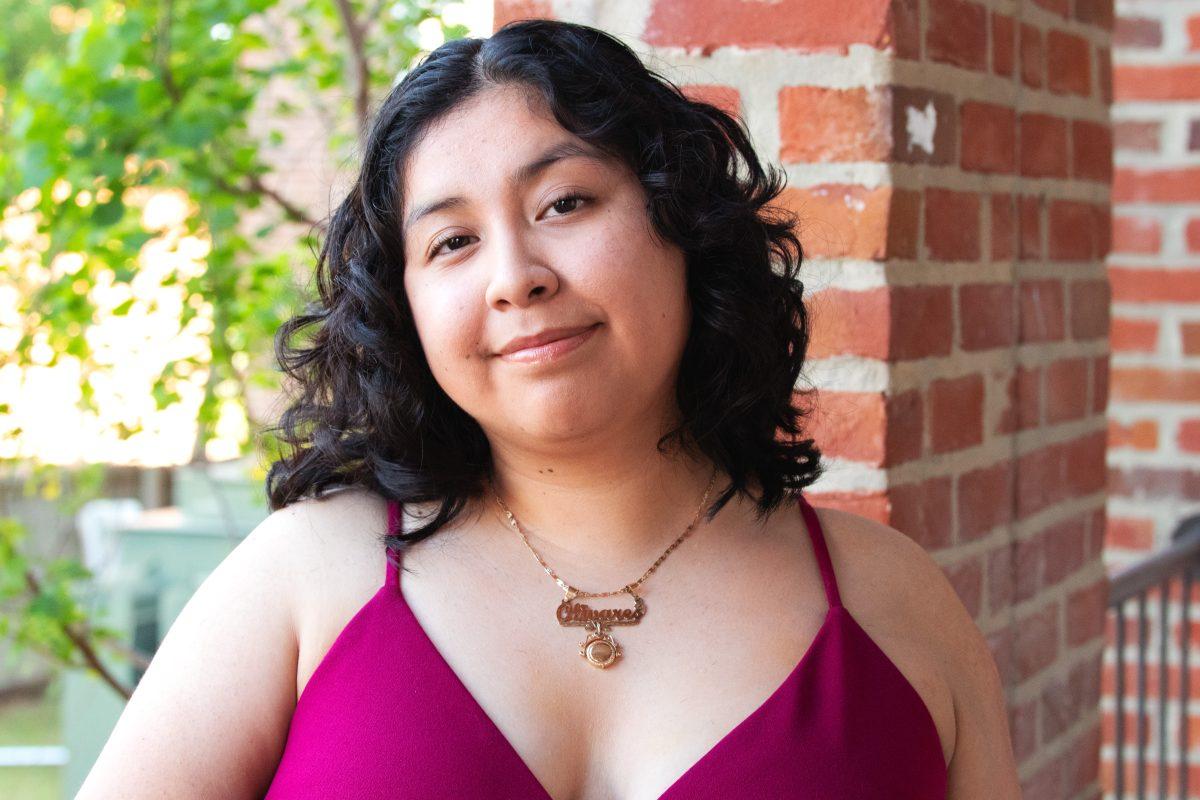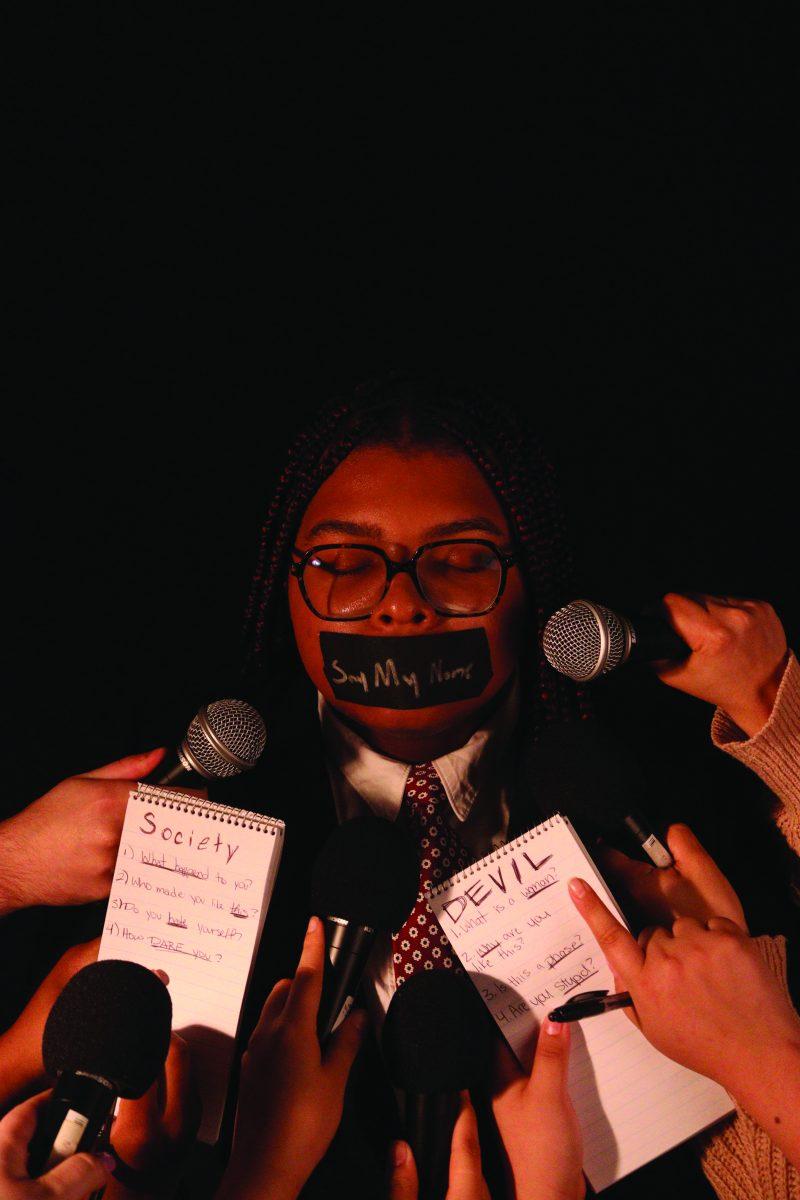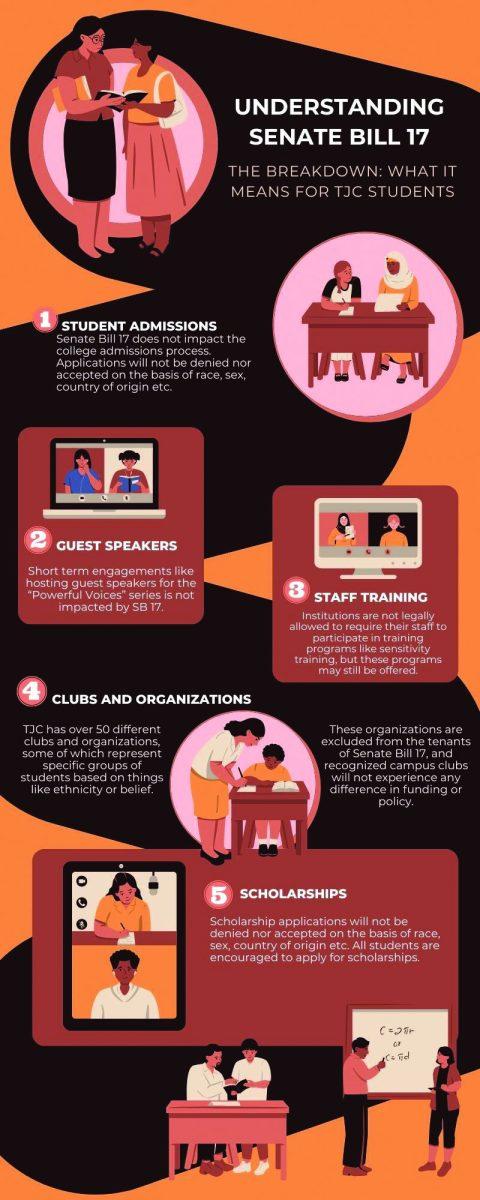Senate Bill 17, put into effect in Texas in January, is a bill that prohibits public colleges and universities from having or maintaining Diversity, Equity, and Inclusion offices unless required by federal law. These offices, committed to helping create and foster an environment in which people of all backgrounds are represented and included, offered programs and training to the staff of these institutions to help ensure students are respected and educated regardless of their race or ethnicity, sex, social, political or religious beliefs.
“Texas hosts world class public institutions of higher education that are as diverse as the state itself. However, certain diversity, equity, and inclusion (DEI) practices are polarizing and work against the goal of inclusion,” said Sen. Brandon Creighton in his committee report. Under this law, institutions of higher learning can no longer legally require employees to participate in DEI training and practices, like unconscious bias training or diverse hiring practices.
Senate bill 17 prohibits DEI offices in Texas schools: March 6, 2024 DrumBeat student media broadcast.
TJC did not previously have a DEI office, but TJC Dean of Students Tampa Nannen addressed concerns about what this new legislation may mean at TJC for matters such as resources, student admissions, scholarships and campus organizations. “What I appreciate is the opportunity to tell you what we have, because these services are not going to change. They are the services that we have had for years,” Nannen said. “[We’re] always looking for better ways to serve students, because our goal is for students to be successful.”
The language of the bill suggests that student admissions will not be negatively impacted.
“[One] of the tenets of Senate Bill 17 is that students are not to be selected for admission based on sex, color, ethnicity, country of origin; there are several characteristics,” Nannen said. “Look at our diverse, you know, population. No one is excluded from TJC because of any of those things.”
Like many other Texas colleges and universities, TJC has a notably diverse population with over 12,000 students and 600 plus faculty members who fit into many varied demographics. Women make up 62% of our population, men 38 %, non-traditional students total in at 43%, Hispanic/Latino students make up 11% along with many other minority populations.
“[We] are educating everyone — the path to a better world,” Nannen said. “That’s what we believe, and that’s where we’re headed.”
In addition to the diverse population, TJC has over 50 different clubs and organizations, some of which represent specific groups of students based on things like ethnicity or belief like the Hispanic Student Organization or the Baptist Student Ministry. According to SB 17, these organizations are excluded from the tenants of the bill, and recognized campus clubs will not experience any difference in funding or policy. “[We] have organizations, and they can still operate just like they have in the past. This is specifically for those that are recognized on our campus,” Nannen said.

However, according to an article written by Lily Kepner at the Austin American-Statesman, bigger schools like UT Austin are experiencing significant changes as a result of the bill.
“At UT, officials have cut programs and scholarships; forced student and faculty groups sponsored by the school to comply with the law or risk losing their funding; and closed the Multicultural Engagement Center, which housed six UT-sponsored student groups[.]”
TJC hosts many accomplished and distinguished guests that speak to students as a part of the Powerful Voices lecture series. TJC recently hosted renowned author and activist, Dr. Temple Grandin. Grandin, known for her advocacy for autism awareness as well as her revolutionary work in the cattle industry, delivered talks about both cattle handling and developing strengths and getting jobs for individuals facing autism. Under SB 17, short-term engagements are not affected.
“[Even] when we have our speakers on campus, you know, we typically have the Powerful Voices lecture series,[we] can still do that,” Nannen said. “There is no problem with that, it’s not affected by this bill at all. Any type of a short-term engagement like that is not affected.”



























